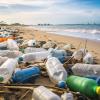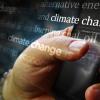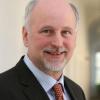
Universal education - particularly of women - has been a fundamental driver of human development and progress. The changes that education brings could also determine the future path of humanity, argues IIASA World Population Program Director Wolfgang Lutz in a new publication with the Pontifical Academy of Sciences.
The rise of literacy has been fundamental in world population trends, and will be a deciding factor in future population growth, as well as how humanity copes with looming challenges such as climate change, according to a new article by IIASA World Population Program Director Wolfgang Lutz, who is also founding director of the Wittgenstein Centre for Demography and Global Human Capital (IIASA, Univ. Vienna, VID/ÖAW).
The article is based on the opening lecture delivered in 2018 to the general assembly of the Pontifical Academy of Sciences, one of the most prestigious scientific academies with roots back to 1603.
In the paper, Lutz discusses recent developments in demographic and interdisciplinary research showing the central role of education of not just elites but the general public including all women, and introduces the notion of Homo sapiens literata. The term intentionally uses the female gender of the adjective to homo which in conventional Latin grammar has a male gender although it refers to both men and women. The female gender was chosen to underline the decisive role of female literacy and education in the transformation of human societies.
“Over the past two hundred years, we have seen declines in mortality rates, followed by declines in fertility in many countries, a concept known as the demographic transition,” says Lutz. Research by Lutz and others has shown that this transition—the causes of which were long debated—can be explained by improvements in the average levels of education in a population, particularly women’s education.
“Empowered homo sapiens literata has shaped the world, including not only an improvement in living conditions but also a visible footprint on the natural environment which also threatens to undermine our own life support systems in the future,” says Lutz. “But knowledge and education may offer opportunities for insight and foresight which can bring about a transformation towards sustainable development as well as strengthening our adaptive capacity to already unavoidable environmental changes.”
With the world facing significant social, economic and environmental challenges future world population trends will be a key factor in determining whether humanity is able to achieve a transition to global sustainable development. Projections by IIASA researchers show that education will play a deciding role in this. Lutz says, “What counts is not only the head count but also what is inside the heads, our brainpower”.
Lutz also argues that the deciding factor in education is not necessarily the length of schooling or specific facts and knowledge that imparts, but how education affects people’s ability to abstractly think about what has not yet been experienced, to reason, problem-solve, and make informed decisions.
“The real driver is not the fact that children spend a certain time in school, but it is what this schooling does to their brains, how it changes their synaptic structure and thus affects their cognition,” explains Lutz. He also points out that such cognitive changes can also be acquired outside formal schooling, so that it may be more accurate to speak of a cognition-driven demographic transition rather than education-driven.
Reference:
Lutz, W. (2020). World Population Trends and the Rise of homo sapiens literata. In: Transformative Roles of Science in Society: From Emerging Basic Science Toward Solutions for People’s Wellbeing. Proceedings of the Plenary Session 12-14 November 2018, J. von Braun, M. Sánchez Sorondo (eds) Acta 25 Vatican City 2020. pp. 358. ISBN 978-88-7761-114-7 [pure.iiasa.ac.at/16513]
News

28 June 2024
Drowning in waste: pollution hotspots in aquatic environments

27 June 2024
What can social media tell us about public views on climate change?

21 June 2024

